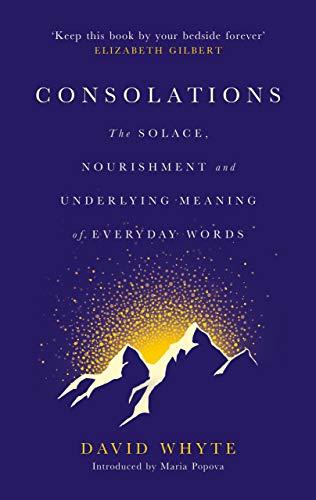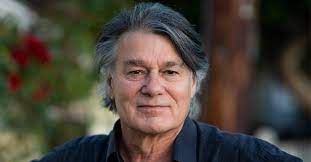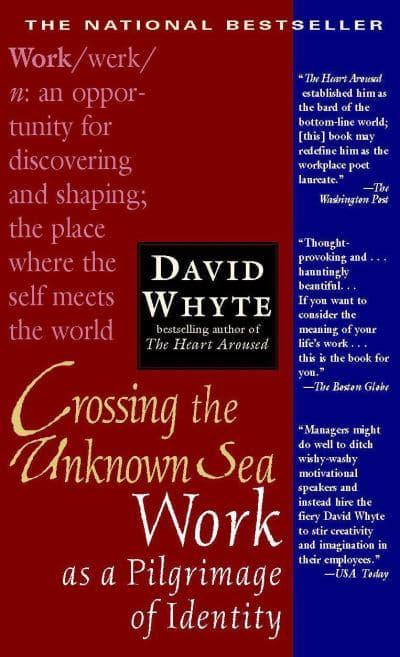We live in strange times. Listening to this mornings news adds to the complexity and anxiety. The junior doctors strike which informs us to avoid being ill this week. The advance of AI and its implications for our knowing and understanding. The preparations for the visit of President Biden to Ireland as they mark the twenty fifth anniversary of the Good Friday Agreement. Peace, conflict, fear, complexity, loss, hope and paradox are all around us and deeply embedded into the fabric of our lives. Further news about the relative weakness of the economy. The relentless war in Ukraine. These times are complex and disturbing.
David Whyte faces our human condition with skill and heart and love. He faces head on many dimensions of living unpacks aspects of being human that many of us spend our lives trying vainly to avoid – loss, heartbreak, vulnerability, fear – boldly reinterpreting them, fully embracing their complexity, never shying away from paradox in his relentless search for meaning.
I was first introduced to Whyte about fifteen years ago. His book Crossing the Unknown Sea: Work as a pilgrimage of Identity left an abiding effect on my striving to succeed and driven task focus to work and its labour. I shared his narratives with others but never quite seemed to break out of the mode of functional and hyper active labour. The protestant work ethic (defined in sociological theory, as the the value attached to hard work, thrift, and efficiency and in our worldly calling, were so esteemed that they were deemed signs of eternal salvation.) This mind set was ingrained in us at my North East Grammar School and lived out in the functionalism and anxiety of ministry in a variety of settings.
It is into this space and some of the struggles associated with it that Whyte invites his reader into a reorientation offering a map and a compass to negotiate the territory of our choices, our living and the texture of our contradictions.
In 2010 The Observer approached Whyte to write a short essay on regret. Three hundred words was the limit. How many of us could rise to this challenge ?! Whyte responded with skill, and the creativity of the poet. In this piece ( pp130-131) the reader is taken into the vulnerabilities of what we need or want from being human. Living with regret for all of us is part of the DNA of daily living ! Whyte describes regret as “an elegy to lost possibilities, even in its brief annunciation.” (p131). The words are left hanging and we are invited to ponder, feel and make the connections.
This one word is now 52 words. They are all ordinary and we know a little of what they might mean! . Starting with Alone, and ending with Withdrawal we are taken on an adventure. There is in these pages a warm blanket of consolation as we face pain ( p116) honesty ( p89) rest ( p132) and so the challenges and questions are opened up so we see afresh what connection might look like. The map and compass always take us deeper and into a geography that is surprising as we reassess who we are and what might make us whole.
Beginning with ‘Alone’ and closing with ‘Withdrawal’, each piece in this life-affirming book is a meditation on meaning and context, an invitation to shift and broaden our perspectives on life: pain and joy, honesty and anger, confession and vulnerability, the experience of feeling overwhelmed and the desire to run away from it all. Through this lens, procrastination may be a necessary ripening; hiding an act of freedom; and shyness something that accompanies the first stage of revelation.
This isn’t an easy read. There is confrontation and challenge. There is beauty and consolation. The reader is invited to dig deep and be honest about fragility and insecurity. This is soul work and an invitation that many of us may need to negotiate what has happened in and beyond these pandemic times.
It is also an invitation to those of us who aspire to write that we should say more with less words and a deeper imagination. Poetry can take us into places where the verbosity of prose leaves us confused or overwhelmed in the intellectual games we play.
What might a reconstructed theological journey deeper into meaning look like in our revelations of divine love for human flourishing? Less control, less anxiety, less functionalism and control – and more exploration of an inner landscape that might have been previously concealed but is waiting to burst open and explode with new life.


